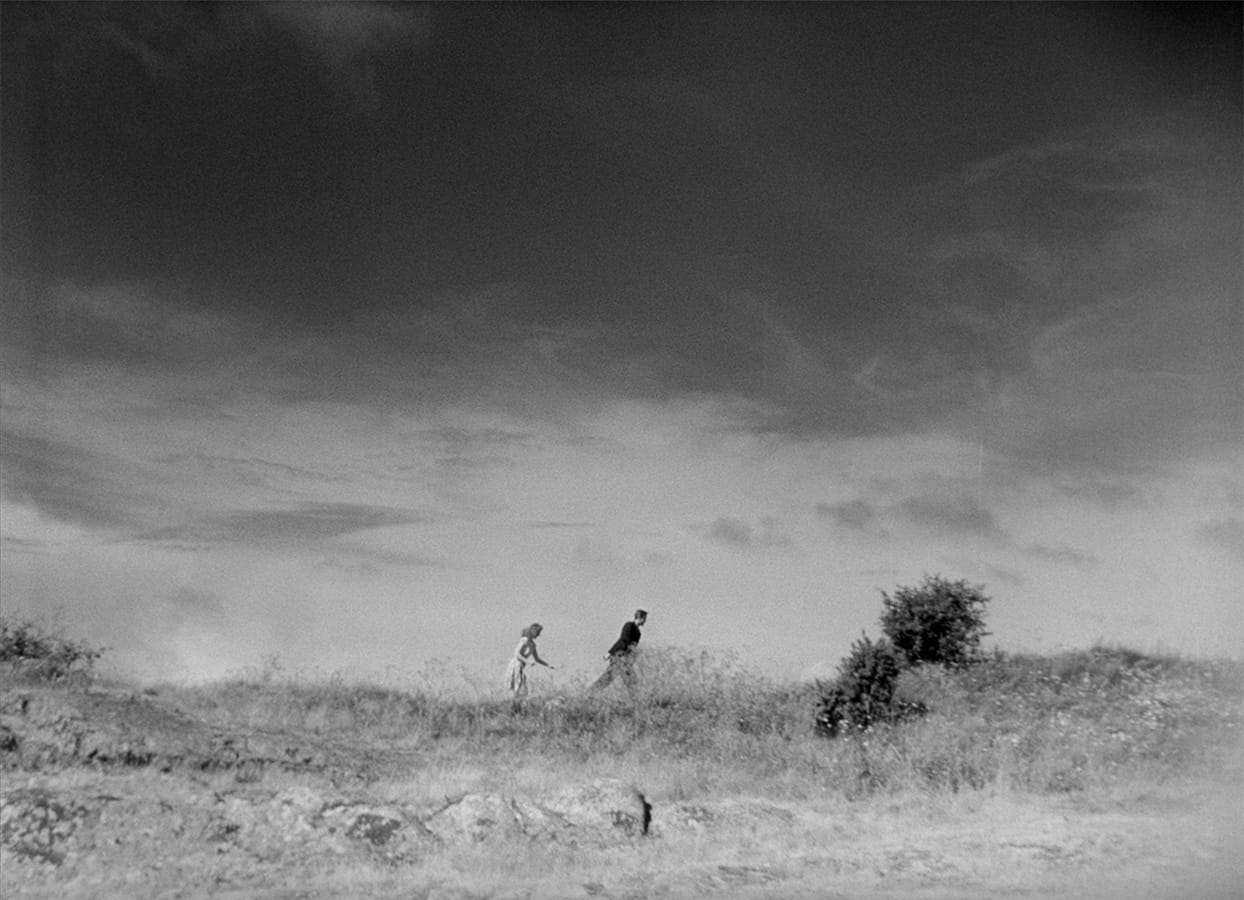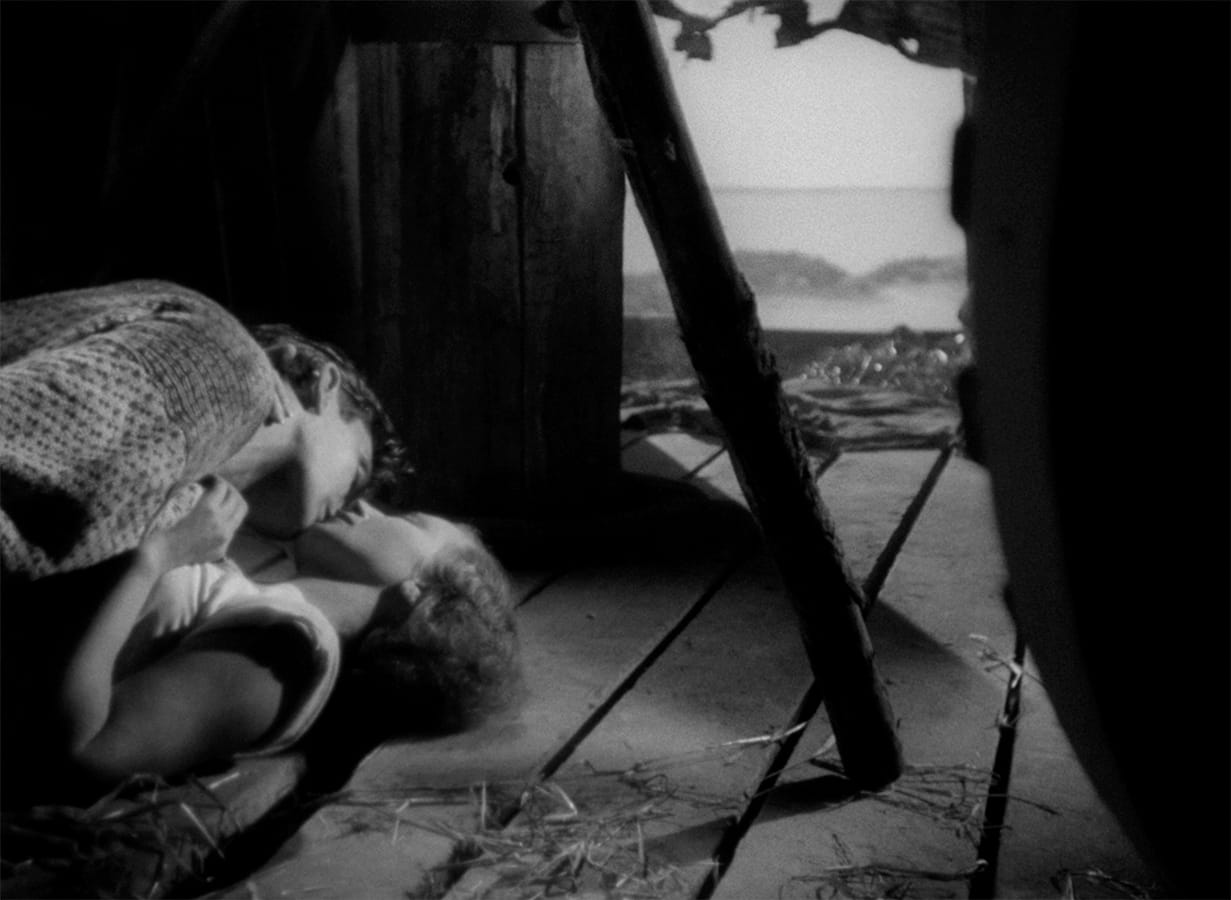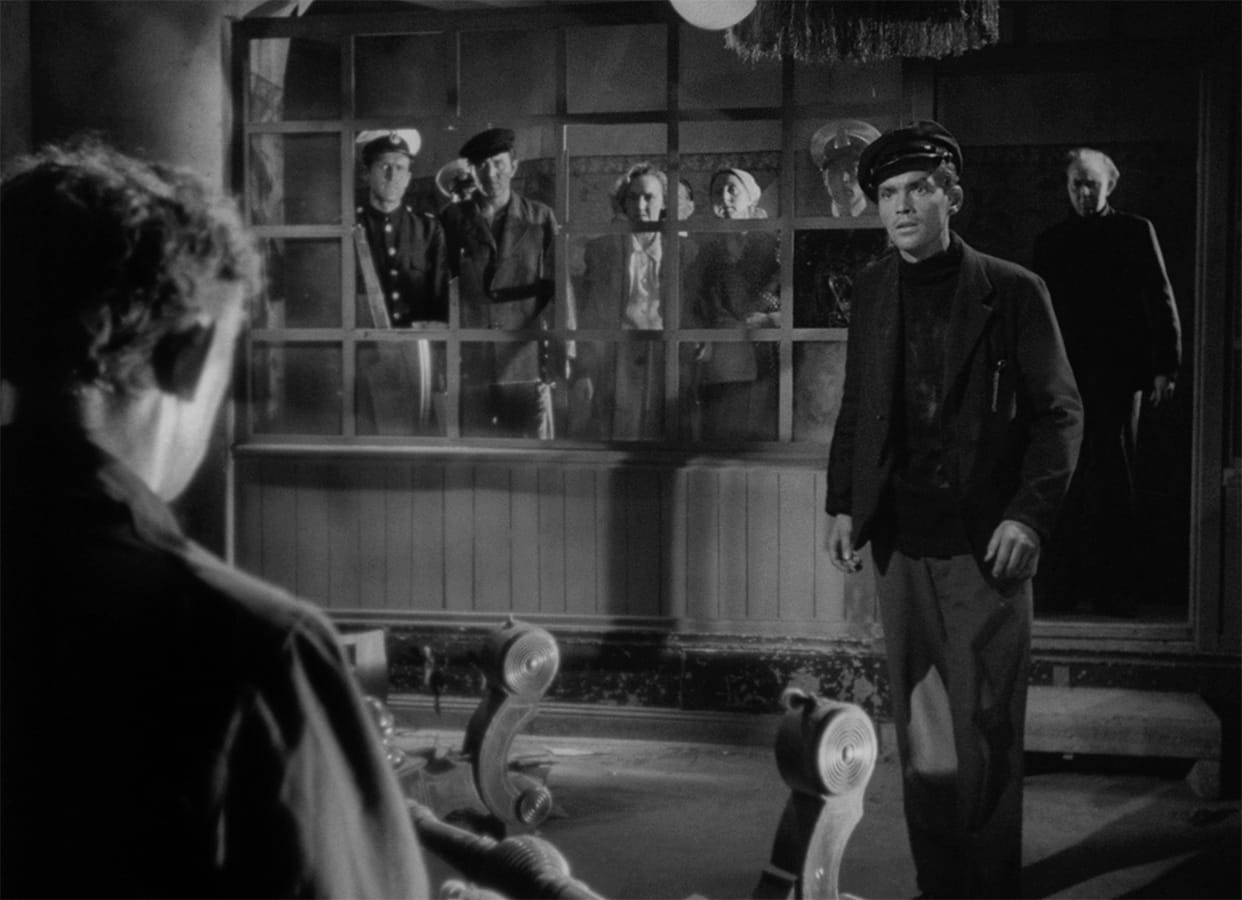Crisis and A Ship to India: Bergman in the Making

In 1942, at the age of twenty-four, Ingmar Bergman was hired to work as a “script washer” for Svensk Filmindustri. His job on this “slave ship,” as he later called it, was to turn out Hollywood-style screenplays, an experience he described as providing “solid foundations” for his directorial efforts. However solid the foundations may have been, though, Bergman looked back harshly on his early forays behind the camera. He called his first film, Crisis (1946), “lousy, through and through,” and his third, A Ship to India (1947), “a major disaster.” Such retrospective hostility is not surprising. No one likes to be reminded of where they come from. Early work is proof that genius has a history—that it develops along the way, in particular places and times.
Bergman was not “Bergman” when he directed these films, although both show flashes of Bergman becoming Bergman. They contain early expressions of narrative elements that would interest him throughout his career (authoritarian fathers, relationships among women, aging, the theatrical frame, sickness and suffering, the temptation of suicide). And they evince, in embryo, some of his visual preferences. From the beginning, he eschewed Hollywood’s standard shot-reverse-shot model, preferring to hold the camera on one face. (It’s also hard to imagine another director inserting, into a first studio commission, a scene of an old person waking in screams from a nightmare about death.) But we don’t have to see Crisis and A Ship to India as merely the early stages of an inevitable evolution. They also show us how Bergman’s mature investigations into spiritual torment and despair exist on a cinematic continuum with the frequently maligned genre of melodrama, which treats private feeling and the fate of the individual as matters of utmost importance.

A Ship to India



“We’re in Berglandia, where people openly discuss their mutual needs, desires, and hates, demanding to be recognized and understood.”






